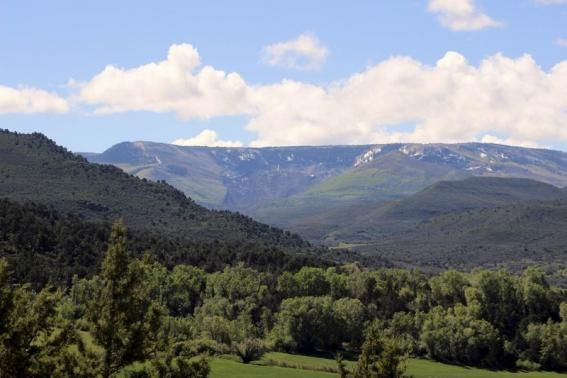US Forest Service Seeks To Protect Wilderness From Pesky Journalists; Press Association Cries Foul

If you’re a journalist seeking to answer that age-old question about a tree falling in the forest, get ready to pay up.
The U.S. Forest Service is seeking to finalize a controversial proposal that will require media outlets to secure pricey special-use permits before they film or take photos in federal wilderness areas. The proposal, posted to the Federal Registry earlier this month, has not garnered much media attention (the Oregonian reported on the restrictions on Tuesday), but it is particularly worrisome to free-press advocates who say the rules are overly broad and would severely limit newsgathering efforts.
“It’s extremely problematic,” Mickey Osterreicher, general counsel for the National Press Photographers Association, told International Business Times.
Set to be made permanent in November, the rules require a special-use permit for commercial filming or still photography on federal land within the National Forest System, totaling some 193 million acres throughout the country. Although the rules make an exception for “breaking news” events such as forest fires or rescue efforts, Osterreicher said that letting the government determine what is and isn’t breaking news is a slippery slope with chilling consequences for press freedom.
“What if there’s a fire and three weeks later it’s still raging?” he said. “A news organization could send somebody out, and they could say, ‘Nope. You need a permit. It’s not breaking news anymore.’”
He added that it’s bad policy to put journalists and news crews in the position of having to justify their presence at a critical news events. “In breaking news, moments [are critical],” he said. “Who wants to be arguing with a park ranger or some bureaucrat about whether or not they’re entitled to be on public land?”
A spokesperson for the U.S. Forest Service did not immediately respond to a request for comment. The agency, part of the U.S. Department of Agriculture, is tasked with protecting and maintaining more than 150 national forests, and in doing so, it is authorized to collect fees and issue fines for certain activities. Moreover, the 1964 Wilderness Act prohibits commercial enterprise within wilderness areas.
Under the proposed rules, special permit fees could run as high as $1,500 for commercial photographers. The rules come at a time when the Forest Service is being forced to allocate a greater percentage of its budget toward fighting fires, as a USDA report revealed this summer.
Osterreicher called the plan a “permit scheme.” He said fees for Hollywood movie crews or other large commercial endeavors are one thing, but he cautioned that excessively broad directives too often foster government overreach in unintended ways. For instance, a vacationer snapping photos with a professional-looking camera could be seen as engaging in a commercial activity under the current proposal.
Even more troubling, Osterreicher said, is that the rules make no distinction between commercial and editorial photography. He said having to get a permit to cover a news story, whether it’s breaking news or not, is a clear violation of the First Amendment. What’s more, because the Forest Service has the right to deny permits to projects it deems appropriate, journalists could be prohibited from covering stories simply because they cast the agency in an unfavorable light. Upholding the proposed restrictions runs the risk of allowing the Forest Service to control media representations of the wilderness areas it controls.
A temporary version of the rules has been in place for a few years, but the Forest Service is seeking to make them permanent. The agency posted the rules earlier this month and is seeking public comments until Nov. 3.
Osterreicher said that the NPPA plans to submit its official comment soon, but he worried that the comment period is merely a formality and that the agency has already made up its mind. “I think we will be putting the government on notice,” he said. “If they go ahead and persist in doing this, we will probably challenge them in court.”
Got a news tip? Email me. Follow me on Twitter @christopherzara.
© Copyright IBTimes 2024. All rights reserved.






















